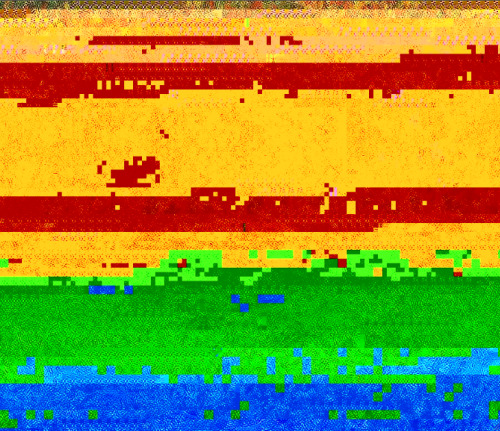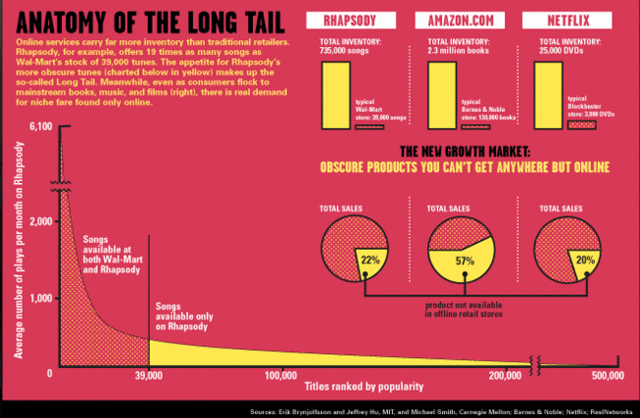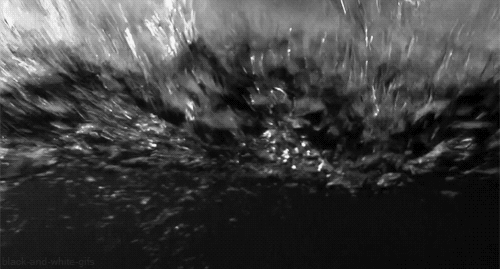Tagged: social media
What do we do with the fragments? Week 7 lecture
- Social media are more lists than narratives, eg Twitter, Flickr, etc. They are fragments listed together, not narratives.
I think I’m beginning to understand what Adrian has been getting at for the last few weeks: that we need to shake this kind of romantic notion that everything is a story or narrative, but I still can’t seem to get over it! Jennifer Egan’s novel A Visit From The Goon Squad I would argue is a list of fragments, but I would also argue as a total these fragments come together to present a narrative. I feel is we did list all of these fragments from Twitter it would present some kind of narrative: the progression of news stories coupled with people’s reactions, etc. Would this add up to some kind of narrative? Or just a collection of the current zeitgeist? Is there a difference?
- Representation as tyranny? –> This idea fits in with Plato’s theory of representations in art which we studied earlier this semester in Philosophy/literature
- Semiotics
- The words matter more than their specific forms (although always exceptions, eg, if we were a designer clearly typography etc would matter.)
- The world exceeds us in every possibility
- Singing mice
- We need to get over ourselves
- We are not at the center = trees have rights
- Representation can only say a little bit, and in doing so represents the whole. As such representation is a tyranny.
- Because of this tyranny we keep misreading the world –> eg, digging up and burning coal because we believed the world belongs to us and is there for our use/consumption.
- Riding a bike to work = a web of lists: places, things, rules, reasonings = Adrian riding his bike to work is not the centre of the bike’s story. Every part of the network has agency.
- We can turn everything into a song, but it doesn’t follow that everything is a song. Maybe this applies to Twitter fragments… we could turn it into a narrative but it doesn’t mean it is a narrative?
- Re: Google and Korsakow = what about the ads? Where would they go and how would Google make any money?
- YouTube is old media
I found this comment from Adrian amusing because only the morning of the lecture I was listening to an interview between Jenna Marbles and Rhett and Link, both popular YouTube personalities. They were discussing TV not understanding YouTube, as exemplified with Jenna’s interview on GMA and her being described as “The Most Famous Person You’ve Never Heard Of”.
Also in the interview with Rhett and Link they discuss he being recognised over traditional TV actors. So for Adrian to say that YouTube is old when ‘traditional’ media isn’t even recognising YouTube is being ‘here’… I hate to say that it shocked me a bit! But ultimately I have to agree: afterall YouTube doesn’t rethink what video is or how we consume it.
- Cusp of media change
- Vine = fragments; Charlie bit my finger = fragment
- What do we do with the fragments? One example is Korsakow.
I’m glad Adrian brought this up as I have been questioning lately why the majority of our grade this semester revolves around a single program, and this idea that it’s simply an example of what we do with the fragments has answered this to a degree.
- Niche audiences + media users
- We can’t work on the model of traditional grand audiences: we timeshift, illegally download, etc, and we can’t make-believe that our audience won’t also do that.
The future is disorder
It’s the best possible time to be alive, when almost everything you thought you knew is wrong.
Ten Dreams of Technology starts with a number of quotes such as “predict the future by inventing it” that remind me somehow of Chuck Palahniuk’s transgressive fiction, particularly Invisible Monsters where the main character invents personas and basically her entire existence based on how she sees fit. In this novel it’s done in a disturbing and enthralling way, but this idea of inventing your own future is interesting in an “everyday” kind of way: what is stopping us from inventing the future, particularly in this era of technology as king where really the possibilities are endless. I only have to look through the plethora of links I’ve posted here during the semester to realise that the way we do things and the way we look at the world has been changed by these inventions, and more importantly, that we all have this power to create change.
I enjoyed this reading for its commentary on technological art, again, a new way to look at the world and the things we can create.

This ‘glitch art’ appropriation of Irises in Monet’s Garden is an example of what can be created through new techniques: The role of the network in these projects is essentially to create an open system of input to promote adaptation.
I also enjoyed the take away idea of not criticizing a work too early:
Criticizing a new idea because it is not yet fully realized seems unreasonably impatient. On that basis, the caves at Lascaux would never have been painted because we did not have a full palette and could not animate in three dimensions. Give us a few centuries and then revisit this complaint.
This rings true of ‘process’ type mediums, such as our blogs. Everyone starts as an amateur, so to criticize someone for not yet knowing how to achieve a certain technique… this doesn’t make sense to me. Criticism in general I don’t understand, but that’s another issue altogether.
Also from this reading was the concept of file sharing = life sharing. I think about this a lot with the sharing-centric ideas of social media. We post where we are, photos of what we ate, we tag who we are with. I had a conversation with my best friend a few days ago who was feeling disheartened that her own life wasn’t as interesting as all of her Facebook friends’ who post ‘cheery’ photos doing ‘interesting’ things. I put these words in quote marks because, as I told her, sometimes I feel like if people were having that much fun they wouldn’t be on Facebook ‘bragging’ to the rest of us. It comes down to that idea of enjoying the moment, which I’m starting to believe more and more that social media and sharing our every movement is impacting.
In another sense though: I did watch Miley’s most recent appearance on Ellen, in which she spoke about asking creative people around her, such as designers, musicians, etc, for a list of their favourite and most influential films, artists, musicians, books and so on. These may not be files so to speak, but this is another form of life sharing I think… sharing with someone those things that inspire and have changed you the most.
Some other takeaways from the reading:
- Every reception of a work of art is both an interpretation and a performance of it, because in every reception the work takes on a fresh perspective
- One of the most persistent tropes of the intersection of technology and art is that it will lead to a whole new art form, just as moving images eventually created cinema.
Mass of niches

Great video on the real potential of social networks, twitter, Google+, FB if used properly to acquire an audience, fans, followers, build community.
Conversation, connection and loneliness
This fantastic video by Shimi Cohen is an interesting link back to the idea of conversation and connection and how that relates to the innovation of loneliness.
filaments

Reading Weinberger’s ‘Small Pieces Loosely Joined’ I’m drawn to the idea of the internet allowing you to “‘try on’ a personality.” Although AOL’s golden era of 1999 has passed, we’re still able to ‘try on’ different personas, or even simply act/write/share differently depending on the audience the medium might afford. Personally I have two Tumblrs, both anonymous, with one themed and one that is basically used to waste time scrolling, reblogging gifs and over-sharing my at least 12 feelings late at night. In contrast, different personas are experimented with over other platforms: Twitter, Facebook, different blogs. Similarly, .Zannah has her two web pages, which Weinberger fittingly describes as “the views two different friends might have of her.”

This idea of experimentation and play threads back to design fiction, and could prove a useful tool in these diegetic prototypes.
Weinberger does raise the question that may well keep me up all night tonight though:
The very basics of what it means to have a self-identity through time – an “inner” consistency, a core character from which all else springs – are in question on the Web.
What is my online identity when I have so many facets online, or even day-to-day? I know I act differently around different audiences, my parents versus my best friends versus strangers for example, just as I post different content on distinct platforms.
____________________________________________________________
This reading also alludes to four key ideas which I find quite interesting that disconnects the Web from ‘the real world’:
- Space – the Web is a space that occupies no space.
- Time – we determine when and how long we will participate based solely on what suits us.
- Self – as mentioned above, we adopt names, identities and personas.
- Knowledge – the lively plurality of voices sometimes can and should outweigh the stentorian voice of experts.
_________
The article also explores if the internet is making us more or less social, which reminded me of a post I made in early 2012 on Media Musings. I’ll post it below:
Technological devices/vices
I think this blog is something of a conversation.
It’s a little bit (or a lot) one-sided at the moment, but you have the ability to reply to what I say, and I can respond back again in the comments section. I can find my peers’ blogs, and we can converse and share our opinions there.
So, I have to say I was a little surprised at Sherry Turkle’s remarks in The New York Times last month, declaring the “sacrifice of conversation for mere connection.”
Turkle makes the claim that:
“We are tempted to think that our little “sips” of online connection add up to a big gulp of real conversation. But they don’t. E-mail, Twitter, Facebook, all of these have their places — in politics, commerce, romance and friendship. But no matter how valuable, they do not substitute for conversation.”
Simon Jenkins of The Guardian tends to agree with Turkle, stating:
“The internet connects us to the entire world, but it is a world bespoke, edited, deleted, sanitised. … There is no time for the thesis, antithesis, synthesis of Socratic dialogue, the skeleton of true conversation.”
It’s a concept that’s been around for a while: The Week’s 2010 blog laments that “twenty-somethings are just illiterate in the nonverbal language that much of our social and workplace lives runs on” because of iPhones and Facebook, while Socrates even had an aversion to the newest technology of the time: ”[It] destroys memory [and] weakens the mind, relieving it of…work that makes it strong. [It] is an inhuman thing.” (Socrates was talking about writing!)

It seems every so often an, dare I say it, ‘older’ person, perhaps a generation or two above the generation they are criticising, will bemoan the technological devices of the present day and idealise the past. There’s always the “good old days,” the “back in my day,” the pre-text, pre-email, pre-writing era.
But I think what they look past is that the internet is a whole different world for everyone, and is especially beneficial for those who need an outlet of expression or support not afforded to them in the physical world.
Forums allow everyone from students to transgender people to those living with mental illness to converse, perhaps in a way that is impossible in the ‘real’ world. To say these conversations are less fulfilling and important than face-to-face ones, ignores and dismisses the reality and worth of these people’s lives.

Personally, I feel increasing portals of social media (ironic it’s called “social” media, no?) herald the death of connection over conversation.
Social media means the conversation never stops, never sleeps. It’s being connected to someone on a real and deep level that seems to have been misplaced.
I’m talking connecting, not in the technological sense, not in the weird Avatar connecting your hair to a tree/animal/other person sense (unless you’re using that metaphorically, then that could be quite nice), but in the deeply humanistic sense.
As much of a dork as I sound, I mean on the mind, body and soul level.
I can count my close friends on my hands, and most of them are the people I went to school with and saw every single day for five years, while my Facebook friends number into the hundreds.

I never find myself stumped for conversation with these Facebook friends, or with the people I follow on Twitter or Tumblr, but I don’t feel truly connected with any of them.
Breaking news or BREAKING the news?
Lately I’ve been wondering: have we traded accurate news for breaking news?
Thinking about my blog posts for this course, the role of social media in news reporting has constantly been on my mind in one way or another, and I find myself analysing media more than I normally would.
As I watched my Twitter feed a couple of nights ago, suddenly I was hit with an epiphany: in this world driven by ratings, we are constantly competing for breaking news, and are sacrificing accuracy.
Admittedly, it is my (guilty?) pleasure to get my news from Twitter, when I know I should be on the BBC website. Or reading a newspaper – remember those? With the actual hours for a deadline? Where they can actually fact check?
But there’s just something so appealing about finding out what is happening in the world in 140 characters or less. (I feel myself making a mockery of my generation, but I just can’t stop!)
We only have to look at the plethora of celebrity death hoaxes on Twitter to know we can’t believe everything we read. See: Justin Bieber, Britney Spears, Lindsay Lohan, Morgan Freeman, Hugh Hefner.
Perhaps more symbolically, blatant spelling and grammar errors are commonly published – something that infuriates me when I read news.com.au, or any news publication with mistakes. It just shouldn’t happen, and it takes me back to a year ago when my News Reporting class mantra was: If the audience can’t trust you on the grammar, how can they trust you to get the facts right?
That saying certainly rings true. If such careless errors are made in spelling and grammar, how credible is the actual reporting?
Obviously, round-the-clock news television and the internet have shortened the news cycle immensely, and created problems for journalists to check facts and have their copy proofread.
Dan Levy of the bleacher report blames Twitter for problems with reporting:
“Twitter has ruined the pastime of patting a reporter on the back for breaking news. If you want to blame anything for how irrationally consumed media insiders have become about who broke a story, that blame goes to Twitter.”
Indeed, social media has created an ambiguity that extends beyond the scope of who is breaking the news, and blurs the line of what actually makes a reporter. Anyone can become a citizen journalist on their blog, break stories on Twitter (think the US Airways Hudson plane crash) or become Instagram famous for their kitsch photos.
But on the other end of the scale, without social media and mobile phones, how much would we miss? Amateur footage of an incident that otherwise would have gone unnoticed without a news crew around? The Arab Spring may have never reached the heights it did, and dictators may never have been overthrown without the humble mobile phone and Twitter. And along with that, journalists are using social media to discover stories and find sources.
Rich Brooks put it eloquently in his article for Social Media Examiner:
“We’ve moved from a passive news cycle—in which the journalist finds news, reports it and the audience consumes it—to interactive applications of news.”
Brooks also reported on trends found in the The Pew Research Center’s 2011 Annual Report on American Journalism:
- In 2010 every news platform saw audience stall or decline… except the web.
- For the first time ever, more people got their news from the web than newspapers… the gap for TV is closing, too.
- Newspaper newsrooms are 30% smaller than in 2000.
- Nearly half of all Americans now get some form of local news on a mobile device.
So what comes next?
How has your news-consumption changed with the rise of social media and online resources? Do you find news sources more or less trustworthy when delivered over social media? Where do you see the future of journalism heading as social media evolves? And have you found the irony in this post as there are bound to be grammatical errors?

